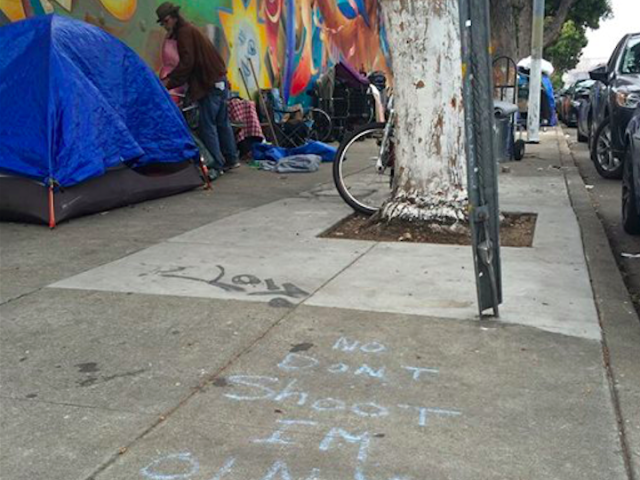After years of wasting $7 billion trying to support homeless mentally ill on the streets, Gov. Jerry Brown signed a bill on July 1 to use $2 billion of Prop 63 bond money to build 14,000 housing units for the population.
According to the U.S. Department of Housing and Urban Development Annual Homeless Assessment Report (AHAR), there were 564,708 homeless people in the United States “on a given night” in 2015. About 60 percent were male, 39.8 percent female and 0.2 percent transgender.
California had by far the largest homeless population, with 115,738, or about 21 percent. California also had the highest unsheltered population at 73,699, and the highest unsheltered percentage at 67.3 percent.
AHAR found that more than half the homeless population are in California and the four states of New York (16 percent), Florida (6 percent), Texas (4 percent) and Massachusetts (4 percent).
The number of cities around the United States that prohibit sitting or lying in public spaces jumped by 43 percent, and bans on begging increased by 25 percent since 2011.
But California’s 125 social justice groups and battalions of pro bono lawyers advocate for the “Homeless Bill of Rights,” which would allow individuals to sleep and beg anywhere. They led the fight in 2004 to pass Proposition 63, known as the Mental Health Services Act, that has raised more than $13 billion for county mental health services through a one percent income tax on state residents who earn more than $1 million a year.
Their goal has beenfor Sacramento to take over all mental health and homelessness services. They have opposed building subsidizing affordable housing with Prop. 63 money that would reduce money for mental health dollars for people on the streets.
But the non-partisan “Little Hoover Commission” found last year that the state “cannot adequately quantify an anecdotal sense that the act [Prop 63] has made California a better place for the estimated 2.2 million adults with a mental health need and their families.” A 2013 state audit of Prop. 63 found that more than $7 billion was wasted, and the money has not been effective in reducing California’s homeless mentally ill residents.
But Gov. Brown resisted a state takeover, preferring to have counties continue to take the lead in social services. He led the bipartisan effort this year to pass AB 1618, referred to as “No Place like Home.” The legislation sends counties bond money from future Proposition 63 revenues to create affordable housing programs for mentally ill homeless people.
“California has the largest homeless population in the nation,” said Maggie Merritt, as executive director of the Steinberg Institute for Advancing Mental Health Policy in Sacramento. “The severity of this fact demands that we do not wait one more day without turning our attention toward it.”
AB 1618 money is expected to provide 14,000 new shelter units that will be made available on a priority basis to help homeless youths and veterans who are also diagnosed with severe mental illness issues.

COMMENTS
Please let us know if you're having issues with commenting.